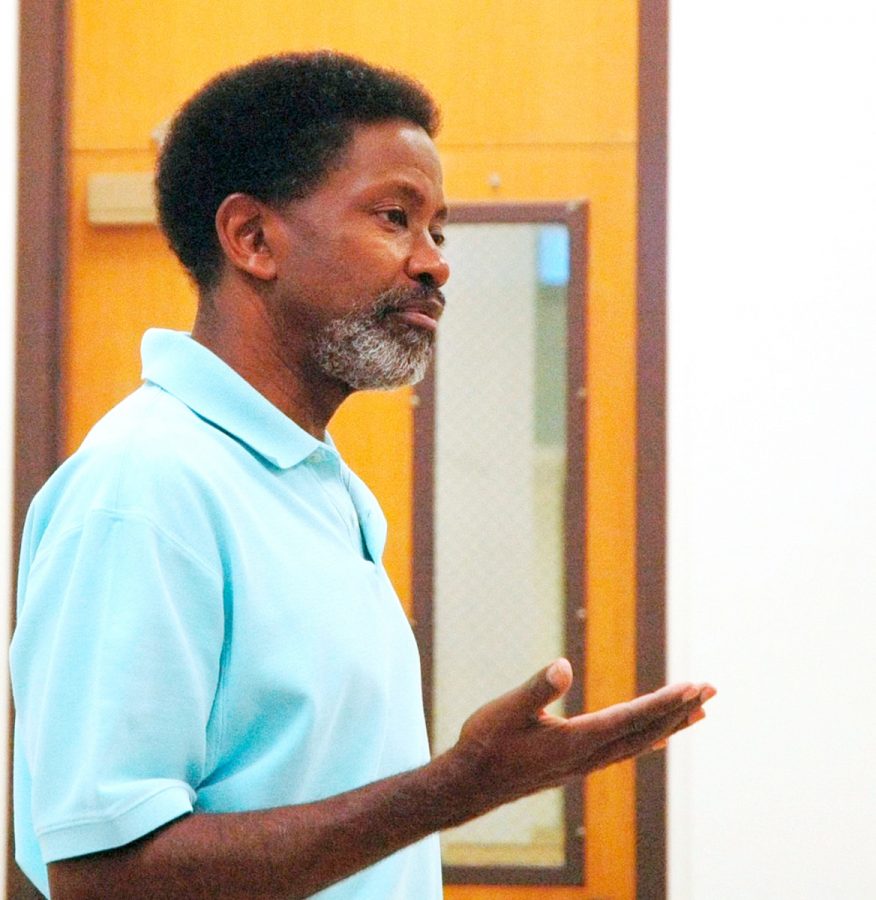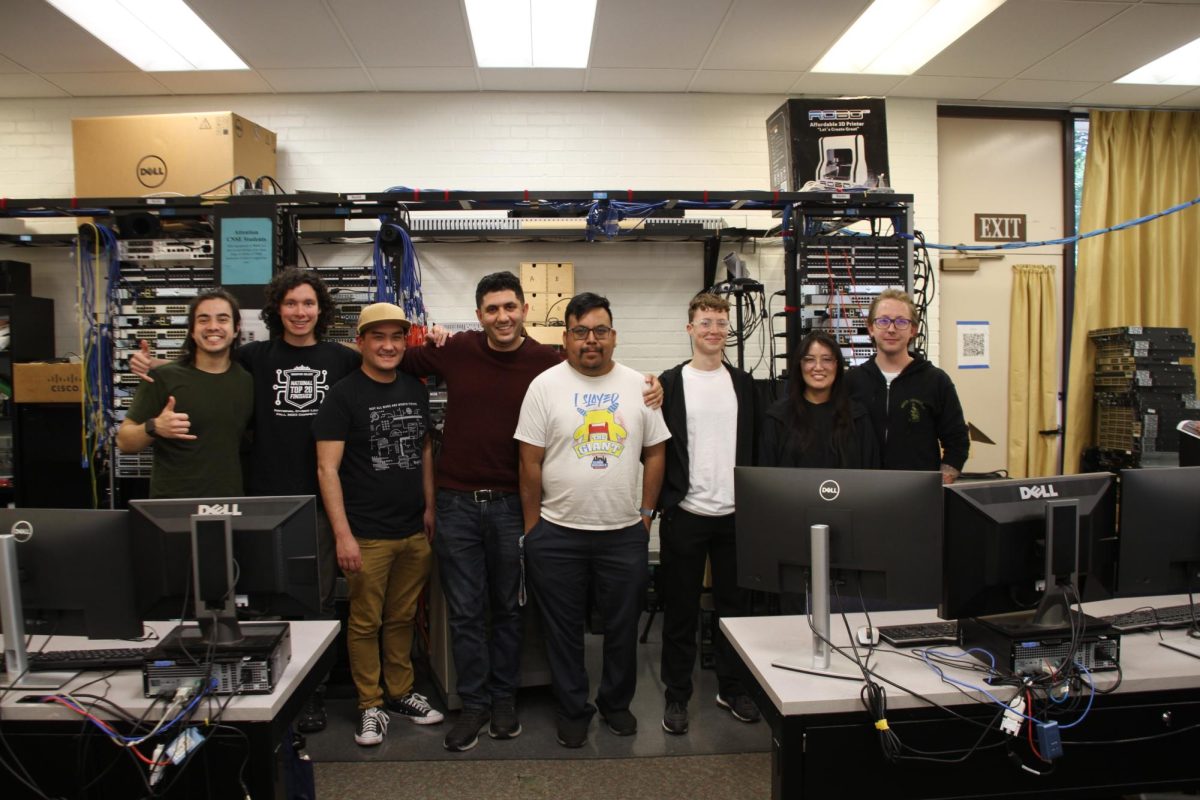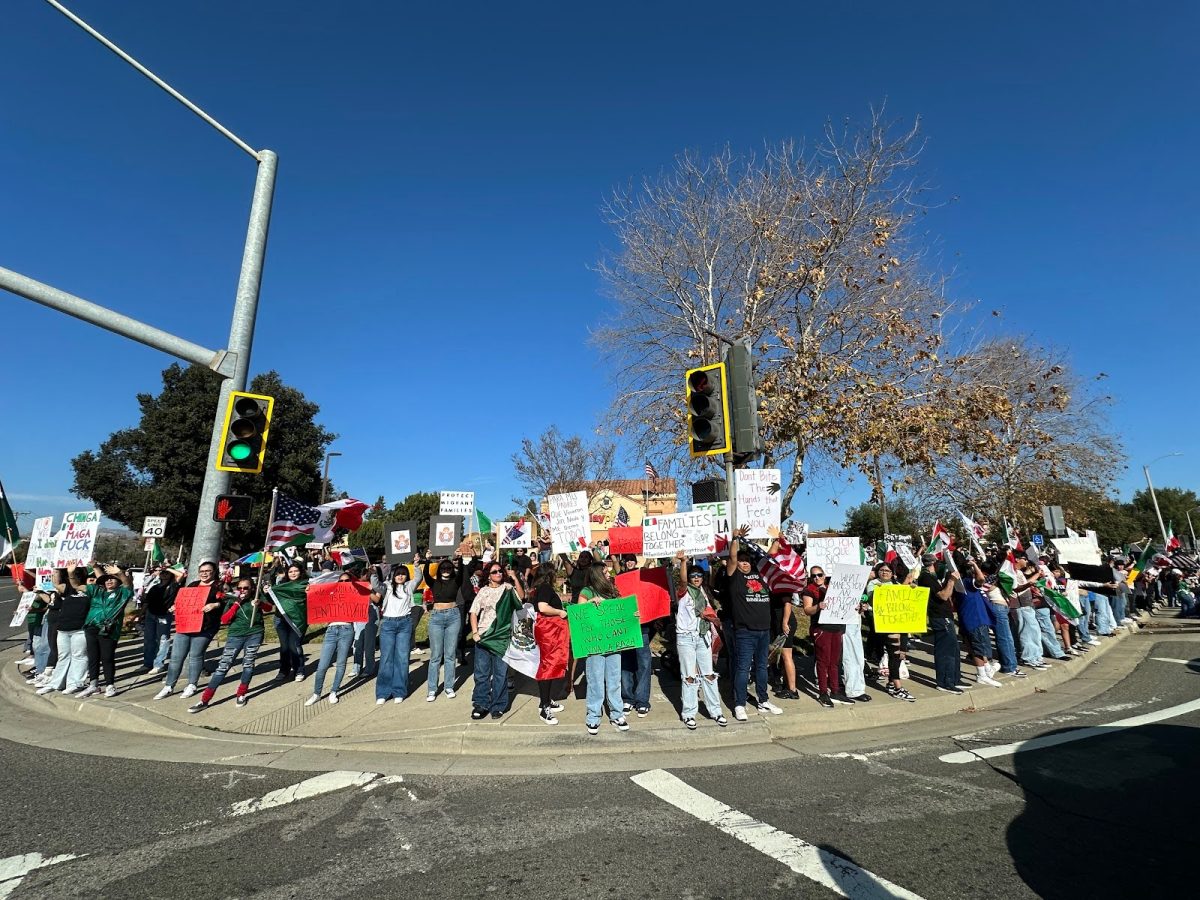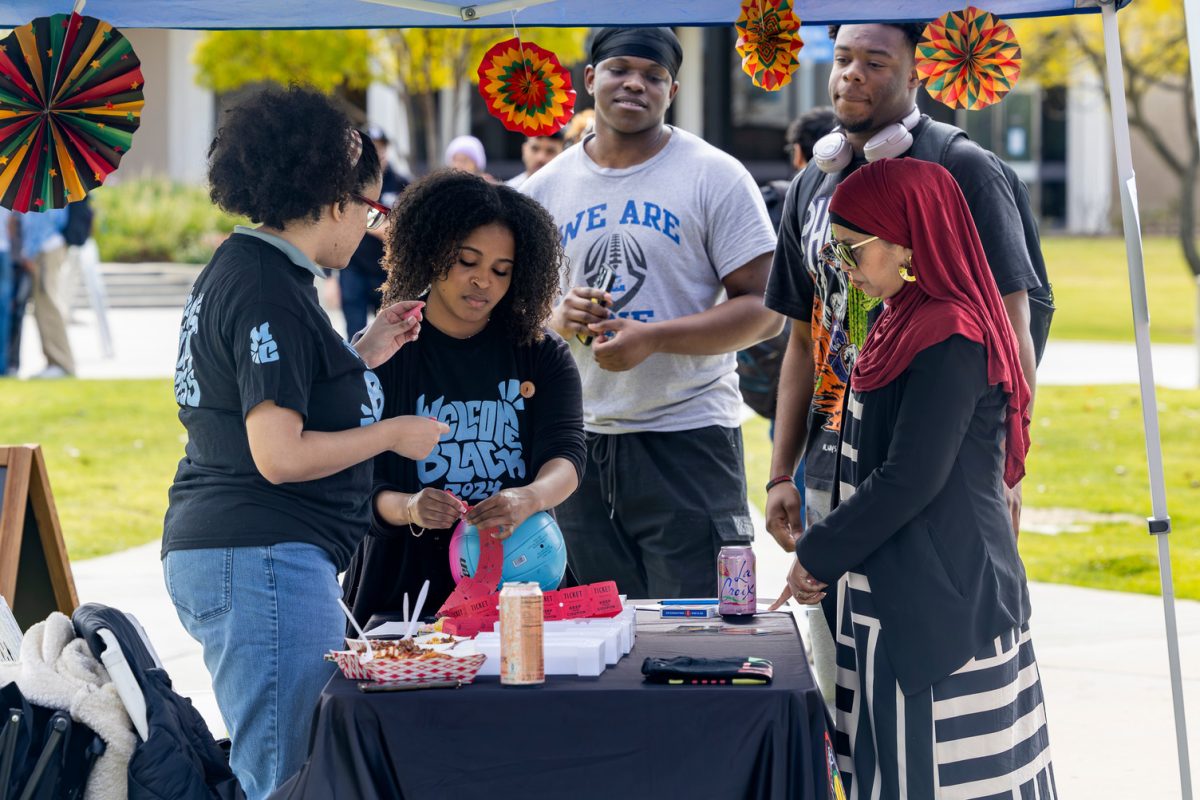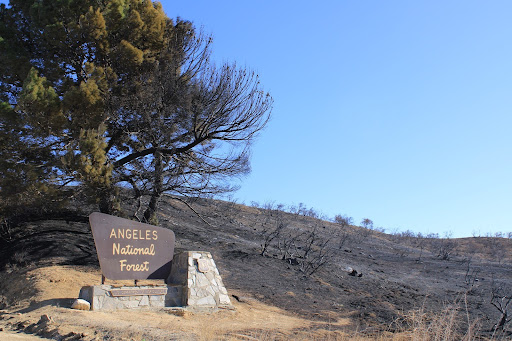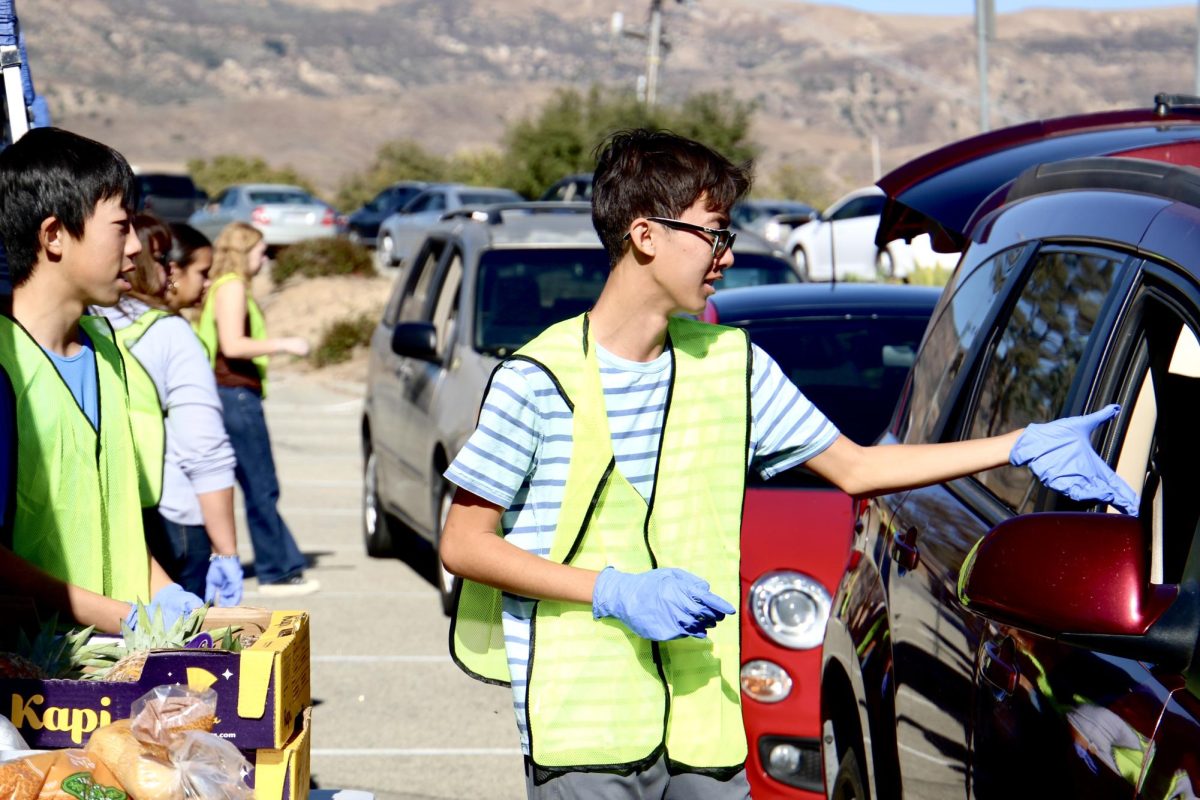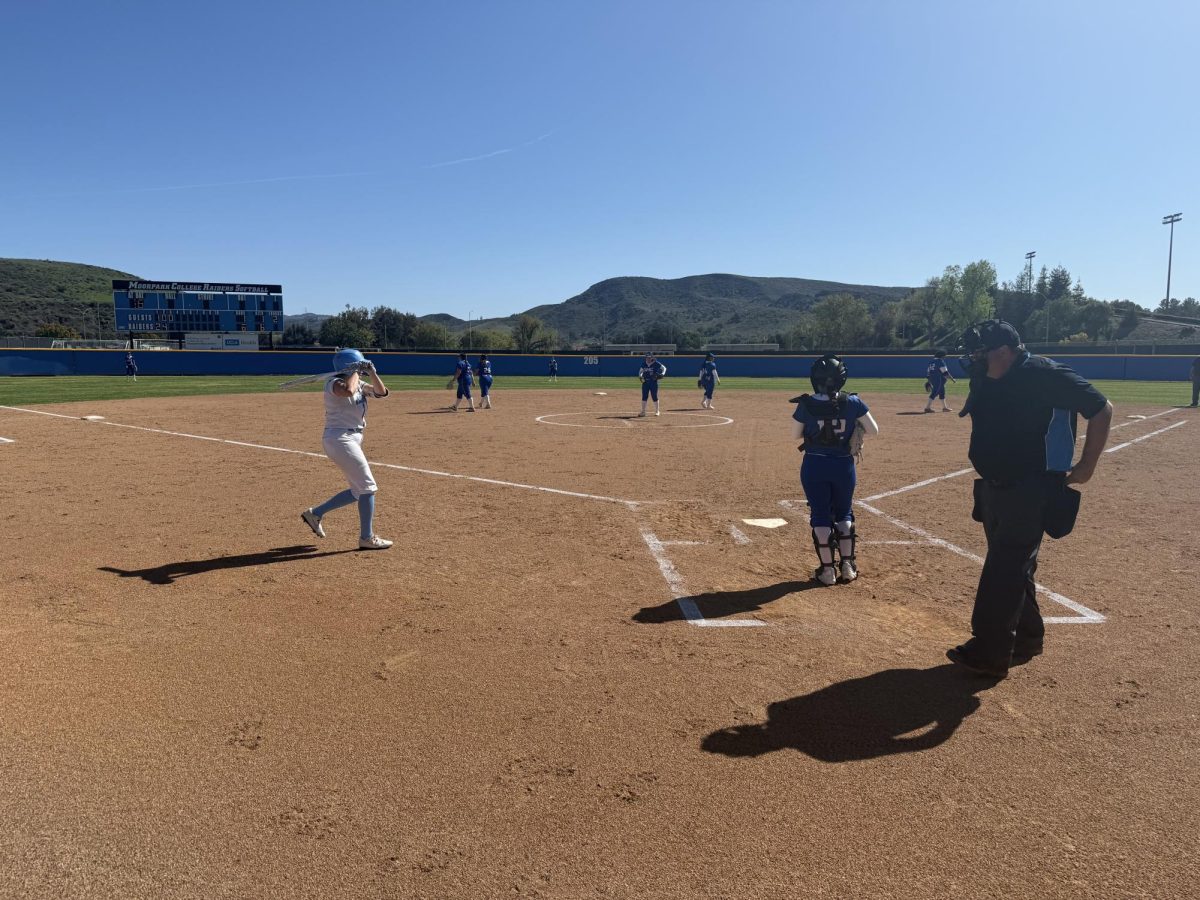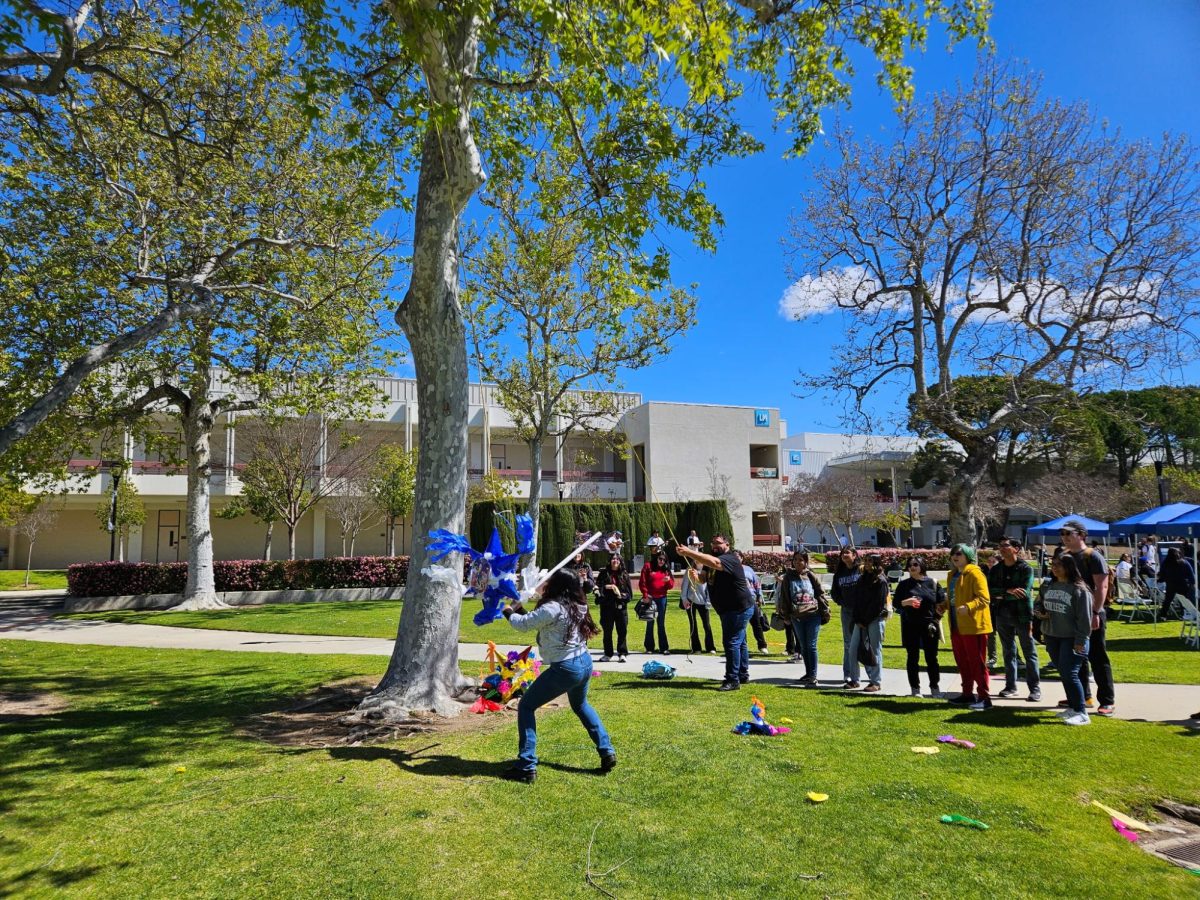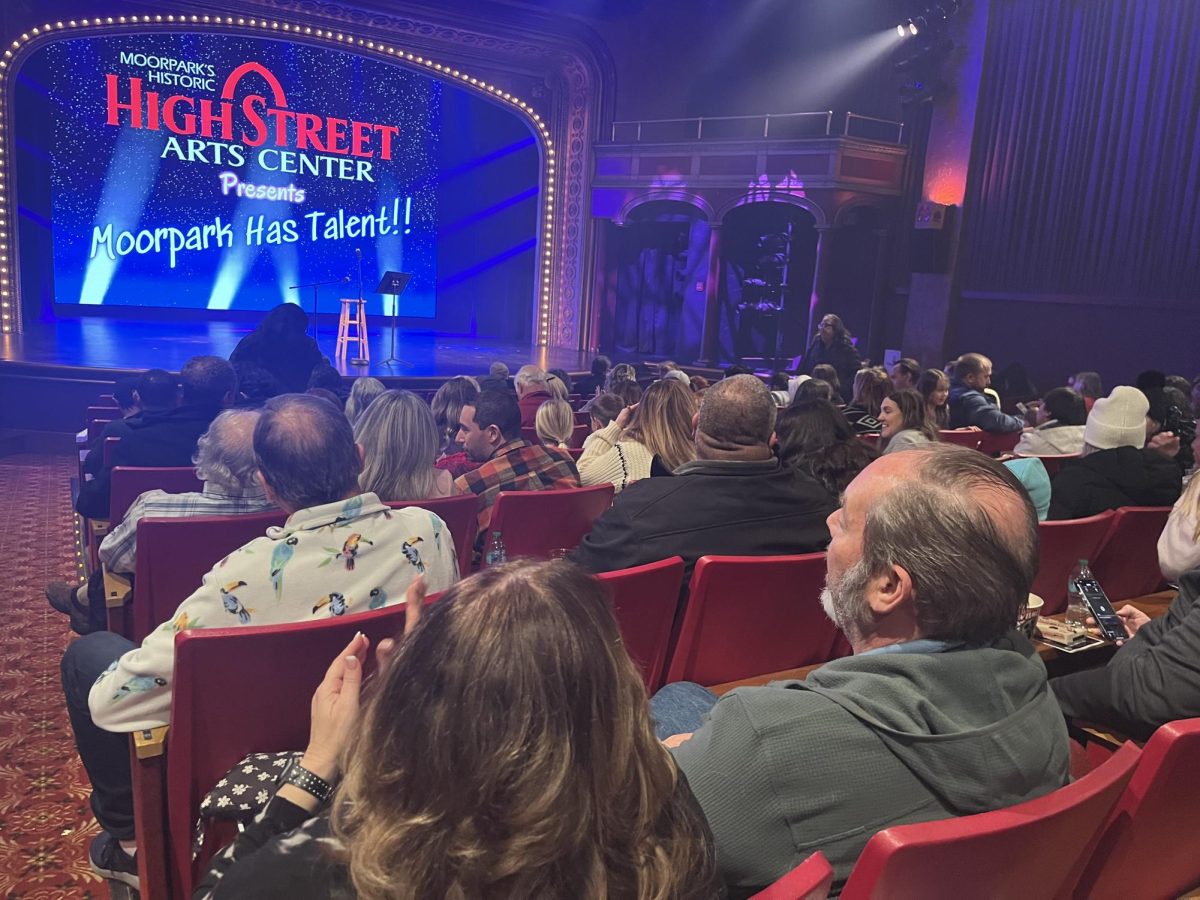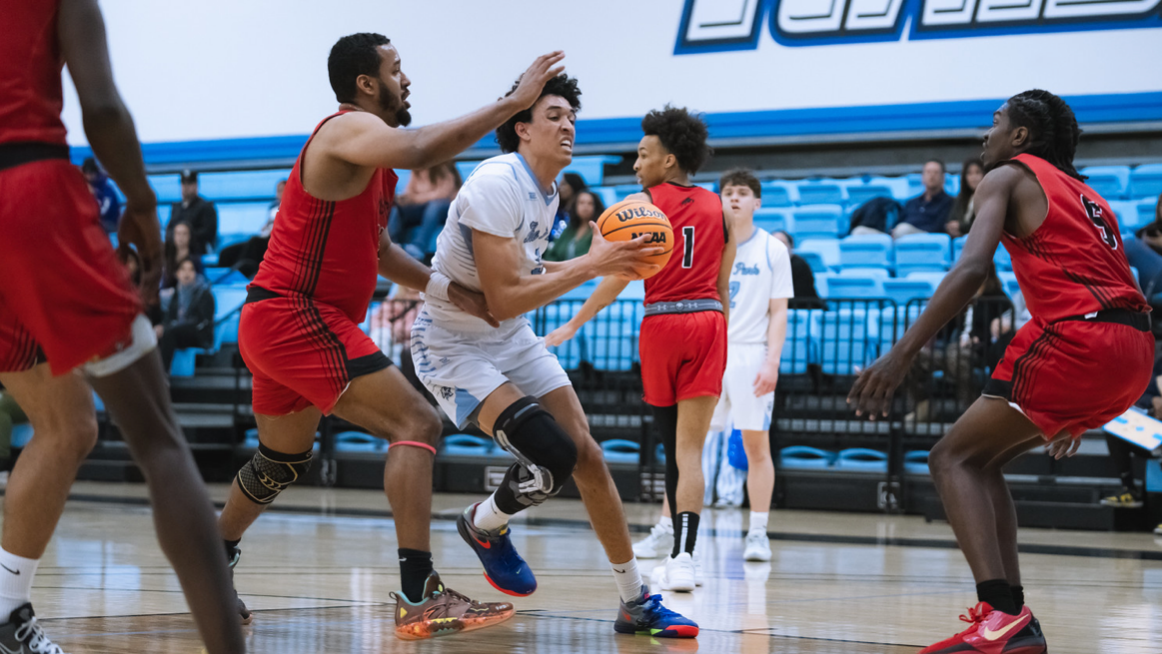From creating the first Multicultural Day to a wedding proposal in the president’s office, former History Professor Ranford Hopkins will keep Moorpark College in his thoughts and memories as he transitions into retirement.
After 28 years of teaching, the impact of Hopkins’ tenure will remain with students and faculty throughout the college. Seen as a friend and mentor around campus, Hopkins impacted the Moorpark College community through his unique approach to teaching and his contributions in and outside of the classroom.
When reflecting on his career, Hopkins is thankful for the opportunities he had to widen the perspectives of his students.
“Moorpark College is a great place and I’ve cherished my time here, the whole campus has been so welcoming,” said Hopkins. “I would tell my students every semester that I hoped they’d learn something from me, but I was certain that someone would say something that was going to promote what they believe, change what they believe, or look at what they believe a little differently.”
Hopkins became interested in history because he thought it seemed to challenge the reasoning behind various conflicts between people, which always stemmed from something that occurred in the past.
In an effort to extend his status as a graduate student, he became a teaching assistant at UC Santa Barbara, where he decided to intertwine his passions for education and history and develop them into a life-long career.
“Professor Hopkins was passionate about history, but he cared deeply for his students and wanted the best for them,” said fellow History professor Patty Colman.
Tackling sensitive subjects with grace was one of Hopkins’ trademarks, allowing for open-ended discussion in his classrooms.
“Sometimes, discussions in history classes can become emotionally charged and certain topics can be difficult to talk about,” said Colman. “But Professor Hopkins showed his students how to approach these challenging issues, confront them academically and with respect for all viewpoints.”
The now-retired professor involved himself in aspects of student life, as well. Hopkins was one of the founding members of the Honors Program on campus, and also founded the annual Multicultural Day. He also was an advisor for the Black Student Union, and a part of both the Multicultural and History Club.
“I aimed to contribute to the college, inside and outside of the classroom,” said Hopkins.
The campus’s welcoming atmosphere invited Hopkins to build his life in Moorpark. He met his wife, Sociology Professor Cynthia Barnett, at the college, and even proposed to her in the President’s Office. After teaching for 25 years, Barnett retired alongside Hopkins in June 2017.
“That’s another thing that Moorpark College gave me,” said Hopkins. “Not only a job that I loved, in a field that I loved, in a place that I love, but I also met and proposed to my wife here.”
Hopkins has received two “Outstanding Teacher of the Year” awards, and three awards from the Academic Senate of California Community Colleges. Though his awards are numerous, Hopkins is humbled by the many other accomplished faculty on campus.
“I’ve been very much in awe of the quality of faculty here and their accomplishments, which is why in some ways I’m embarrassed to become distinguished faculty or get an award because I know of all the great things my colleagues are doing,” said Hopkins. “We really do have an amazing faculty here, and little wonder why Moorpark College is considered one of the premier community colleges in the nation.”
Retirement will entail a future of traveling the world, as Hopkins and Barnett hope to travel to Japan, Costa Rica, Europe and Canada. He also looks forward to becoming more involved in academics, where he will write and publish studies within his field. Teaching will always encompass a part of him, however, as his life moves beyond Moorpark College.
“It’s very difficult to retire because my life is in teaching,” said Hopkins. “We have new faculty coming in with new ideas and perspectives, which will be great for the department.”
Hopkins’ absence from campus will be short-lived, as he expects to return in January to teach part-time. His presence on campus, though not entirely gone, will still be missed by students and staff.
“We hope to hire a new historian soon, but not as a replacement,” said Colman. “Ranford Hopkins will never be replaced.”

